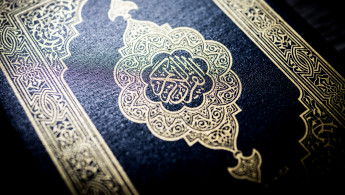Sweden court overturns ban on Quran-burning protests
A Swedish court on Tuesday overturned a police move to ban two Quran-burning protests, as five suspected Islamists were arrested for plotting a "terrorist act" over a similar demonstration.
The burning of Islam's holy book outside Turkey's embassy in Stockholm in January angered the Muslim world, sparking weeks of protests and calls for a boycott of Swedish goods, and holding up Sweden's NATO membership bid.
The Stockholm Administrative Court overturned a police decision to ban two subsequent Quran-burning protests in February, saying security risk concerns were not enough to limit the right to demonstrate.
The "police authority did not have sufficient support for its decisions", judge Eva-Lotta Hedin said.
"We maintain that our decision was correct," police spokesman Ola Osterling told news agency TT, adding that the police authority will consider whether to appeal the ruling.
Swedish police had authorised the January protest organised by Rasmus Paludan, a Swedish-Danish activist who has already been convicted for racist abuse.
Paludan also provoked rioting in Sweden last year when he went on a tour of the country and publicly burned copies of the Quran.
Police subsequently refused to authorise two other requests by a private individual and an organisation to hold Quran burnings outside the Turkish and Iraqi embassies in Stockholm in February.
Police argued that the January protest had made Sweden "a higher priority target for attacks".
'Freedom of expression'
Paludan's Quran burning also damaged Sweden's relations with Turkey, which took particular offence that police had authorised the demonstration.
Ankara has blocked Sweden's NATO bid because of what it perceives as Stockholm's failure to crack down on Kurdish groups it views as "terrorists".
Swedish politicians have criticised the Quran burning but adamantly defended the right to freedom of expression.
"Freedom of expression is a fundamental part of democracy. But what is legal is not necessarily appropriate. Burning books that are holy to many is a deeply disrespectful act," Prime Minister Ulf Kristersson said after the January burning.
Sweden's Security Service said five suspects were arrested early on Tuesday in coordinated raids in the central towns of Eskilstuna, Linkoping and Strangnas, for the alleged planning a "terrorist act" linked to the backlash over the Quran burning.
"The current case is one of several that the Swedish Security Service has been working on… in connection with the high-profile Quran burning," said Susanna Trehorning, deputy head of the security service's counterterrorism unit.
She said the suspects were linked to international "violent Islamic extremism".
The Security Service said however that it did not believe that an attack had been imminent.
"The Security Service often needs to act early in order to avert a threat. We can't wait until a crime has been committed before we act," it said.





 Follow the Middle East's top stories in English at The New Arab on Google News
Follow the Middle East's top stories in English at The New Arab on Google News


